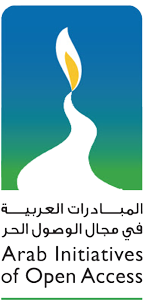العقول المفتوحة و الوصول المفتوح
Open Minds, Open Access
Barbara Fister
The recent reversal of a lengthy and long-awaited court decision about how fair use might apply in electronic reserve readings was disappointing in some ways and reassuring in others. We still will need to make complex decisions about whether making a digital portion of a book available to students enrolled in a course requires permission from and payment to a rights holder or whether it is a fair use. Every single time.
There are lots of good things out there to read about this court case. Nancy Sims (who will be participating in an IHE podcast later this week), Kevin Smith , and Iris Jastram all have written informative explanations of what the decision means and what is still left up in the air. So I won't do anything other than say "go read these posts! I have really smart colleagues!"
What I will say is that it seems wonderfully appropriate that we are thinking through the legal implications of this practice during Open Access Week . This annual event is in its eighth year and we have seen progress made. If you're not quite sure what open access means, the best two-minute explanation was written by Peter Suber and he explains it well, if not in as much depth as in his book about it . A lot of scholars now buy into the idea that it makes sense for their research to be available to all who have an internet connection, not just to those who are lucky enough to work at a research institution or have the resources to purchase all the books and articles they might want to look at.
There's a persistent misperception among many scholars that all open access publishing operations charge authors (most don't), that they are not peer reviewed (most are), and that they're run by scammers (yes, some scammers have set up faux publishing sites, but they're pretty obviously bogus. Rejecting all open access publications as a result is kind of like saying you will only accept messages that come on paper in an envelope with a stamp because email is a scam run by Spanish Prisoner crooks .)
One argument against open access that has never made sense to me is that the system we have works perfectly well and anyone who needs access to research already has it. Publishers have said this to members of the US Congress with a straight face. To me, this is a startlingly anti-intellectual stance. It suggests one of the following:
Only really smart people can understand what I have to say. Most people are ignorant. They should, however, pay my salary because what I have to say is important to smart people. And if ignorant people really, truly want to read my stuff they can buy it. Yes, my book is priced at $120. What's your problem? If you can't afford it, just ask your library to buy it.
What I have to say is highly specialized and important only to fifteen other people, so there's no reason to make it open access. But somebody has to cough up the $20,000 first copy cost for my book or get enough libraries to subscribe to the $17,000 journal I publish in or those 15 people might not take me seriously. That's how it works.
I have to churn this stuff out. I don't care if anyone reads it. I hope they cite it, though.
What's the issue? I don't have problem getting what I need. Wait, why has Elsevier sent me a take down notice? There must be some mistake. I wrote that article. I'll explain it to them after I finish uploading the readings I'm assigning this week.
Okay, that last bullet point isn't anti-intellectual, exactly. It's just the typical disconnect between the systems that have evolved to make research public and the scholar's impulse to share scholarship - their own and others - without jumping through a lot of legal and financial hoops. It seems so natural, somehow, to post a PDF of your latest article online. Scanning a book chapter and uploading it to your course management system is simple - unless you pause to think through the copyright issues, and if it seems to fail the four-factor test fair use, figure out to whom and how to pay for that permission. Scholars see their well-established publishing practices as separate from the sharing they do. Sharing seems both natural and pretty frictionless. But the only way it will truly be frictionless is if we reorganize our financial and labor practices to make it easier to share legally. This is doable without losing rigor or quality.
This won't solve the problem of evaluating fair use on a case-by-case basis and paying permissions when necessary for the decades of research for which all rights are reserved. But if future publications are open access it could save us all a lot of anguish and (even better) knowledge could spread much more easily and widely. The money, and the future, is already here. It's just distributed badly. We can do better, and we will, slowly but surely

















